


















B1 Preliminary for Schools is an intermediate level qualification in practical everyday English language skills. It follows on as a progression from A2 Key and it can help give learners confidence to go on and study for taking higher level Cambridge English Qualifications such as B2 First. It is aimed at school students who want to show they can:
• read simple textbooks and articles in English
• respond to emails on everyday subjects
• understand factual information
• show awareness of opinions and mood in spoken and written English.
The B1 Preliminary for Schools certificate is recognised around the world as proof of intermediate level English skills for industrial, administrative and service-based employment. It is also accepted by a wide range of educational institutions for study purposes.
The updated exam is made up of four papers developed to test your English skills. You can see exactly what’s in each paper below.
Reading (45 minutes)
Writing (45 minutes)
6 parts / 32 questions 25%
2 parts / 3 questions 25%
Listening (30 minutes, including 6 minutes' transfer time)
Speaking (12 minutes per pair of candidates)
Shows you can read and understand the main points from signs, newspapers and magazines.
Shows you can write a variety of text types, with a focus on organisation, structure and accuracy of language to clearly communicate your message.
4 parts / 25 questions 25% Shows you can follow and understand a range of spoken materials including announcements and discussions about everyday life.
4 parts 25%
Shows how good your spoken English is as you take part in conversation by asking/answering questions and talking, for example, about your likes and dislikes. Your Speaking test will be conducted face to face with one or two other candidates and two examiners. This makes your test more realistic and more reliable.
Part 1
Multiple-choice short texts
Part 2
Matching
Part 3
Multiple choice
Part 4
Gapped text
Part 5
Multiple-choice cloze
Part 6 Open gap cloze
Understanding five short messages of different types.
Match five descriptions of people to eight short texts, reading for specific information and detailed comprehension.
Read to understand gist, global and detailed meaning, attitude, opinions and feelings, and answer five multiple-choice questions with four options (A, B, C, D).
Read to understand gist and text structure: choose the correct sentence to put in the gaps.
Read a text and choose missing words (A, B, C, D) to fill in the gaps.
Read a text and write one word in each gap.
Part 1
Write an email
Part 2
Write an article or story
Write an email in response to information given (about 100 words).
Write either an article or a story on the topic given (about 100 words).
Part 1
Multiple-choice short texts
Part 2
Multiple-choice short texts
Part
Gap fill
Part
Multiple-choice long text
Listen to seven short texts for specific information and choose the right picture (A, B, C).
Listen to six short dialogues for attitudes and opinions, and choose the right option (A, B, C).
Listen to a longer text and write down missing information in the gaps.
Listen to a longer text for specific information, detailed meaning, attitudes and opinions.
Part 1
Introductory phase
Part 2 Individual long turn
Part
task
Part
Candidates show ability to use general interactional and social language.
Describing photographs and managing discourse, using appropriate vocabulary in a longer turn.
Using functional language to make and respond to suggestions, discuss alternatives, make recommendations and negotiate agreement, based on picture prompts.
Talking about likes/dislikes, preferences, habits, opinions and agreeing/disagreeing.
Part 4 is now linked to the collaborative task.
2-3 minutes
2-3 minutes
2-3 minutes
3 minutes


For each question, choose the correct answer.
This medicine should be taken with plenty of water on an empty stomach.
A You may not access the school unless you have a pass.
B Children are only allowed to enter the school with an adult visitor.
C You must only enter the school if you are a child’s parent.
A Do not eat anything before taking the medicine.
B You must drink a lot of water after you have taken the medicine.
C This medicine can cause a stomach ache if you drink it.
A You can’t use cash to buy the ticket on the bus.
B Tickets aren’t sold on the bus.
C You must have the exact amount of money for the ticket.



FOR SAFETY REASONS ALL VISITORS, BOTH CHILDREN AND ADULTS, MUST RECEIVE A PASS AT THE OFFICE IN ORDER TO ENTER THE SCHOOL
Hi Jane, this is a reminder that you have a
class at 5pm today. Please ring South Yard Studios back if you need to reschedule.
A Text a message if you are late for class.
B You must call before your lesson at South Yard Studios.
C Don’t forget that you have an appointment in the afternoon.
The ad says that the console
A can only be used by two players.
B is brand new.
C can be sent to the buyer.
Don’t just look for individual words with similar meaning in the text and the options. When you choose your answer, make sure the whole meaning makes sense.
In Reading Part 1 candidates must read five short texts and match them with the correct option A, B or C.
They should think of what kind of text they are reading. For example, texts 1 and 3 are both notices. What kind of text is text 2?
a road sign a label an advertisement an email or text message
They should also think of the purpose of each text. For example, what is the purpose of text 4?
to warn Jane to advise Jane to remind Jane about something to do something to do something
Some texts may contain words candidates don’t know yet. In this case:
• they should check which two options are wrong, or
• they can try to guess the meaning from the kind of text and situation they find it in.
For example, what does the word ‘ship’ mean in text 5?







For each question, choose the correct answer.
The people below all want to learn a new language. On the opposite page there are descriptions of eight language courses. Decide which course would be the most suitable for the people below.
Tanya would like to learn an oriental language and know more about Asian culture. She can attend classes twice a week for up to six months. She enjoys learning in little groups and wants to get an end-course certificate.
Haruki’s going to start an international high school in England. He studied Japanese at a junior high school but he needs to brush it up before the entrance test. He wants to improve his speaking and he’d prefer one-to-one lessons around lunch time.
Kate and her mother Lara are planning to learn a European foreign language in the same class. Lara is at school in the morning so she can only do an afternoon course. She would like to find email pen pals that she can visit in their country.


Rajani is fond of archaeology. He would like to learn Latin or Greek to help him improve his knowledge of past civilisations. He doesn’t have much time so he is looking for an afternoon beginner course that will help him to read aloud real works from the classics.
Gabriel is a 16-year-old boy whose parents are planning a trip to the Far East next summer. He would like to learn an Asian language and he’s looking for classes with people the same age as him. He also wants to learn how to write and read characters.



This 10-hour course is for first-time learners of Greek who would like to start studying a classical language. After learning about the main grammar and pronunciation rules of this language, students are offered the chance to put in some early practice. Every Monday from 5 to 7 p.m.
This elementary-level Japanese course, consisting of 30 evening lessons over 15 weeks, is designed for people who want to learn basic everyday life expressions. Each lesson covers dialogues, vocabulary, grammar, quizzes and role plays. After completing this course, you will be able to talk about simple topics and know about Japanese culture.
This intensive course will examine the history of this unique language from its early origins to its modern form as well as its influence on the Greek and Latin alphabets. You will also learn how to recognise the letters in ancient inscriptions and understand word structure. Lessons are three times a week from 8 to 10 a.m.
Need to refresh your vocabulary and conversation skills in Japanese? Join our crash course for intermediate learners and improve your pronunciation with a personal mothertongue tutor: in a fortnight you will be able to talk about a selection of topics from hobbies to schoolwork. Classes can be arranged to fit your schedules.
Join our weekly morning classes, which run for 20 weeks over two terms: the classes are limited to a maximum of 12 students, to make sure every student gets the necessary attention to learn Latin. We offer courses at levels 1-3, suitable for both beginners and advanced Latin speakers.
Our Korean language program includes both teenage and children courses every Thursday and Saturday morning from January to June. The classes will focus on speaking, listening and vocabulary exercises to provide everyday speaking skills, but teenage students will also learn to read and write a few characters.
This school offers both one-on-one lessons or small classes for up to 3 times a week. In about half a year students can learn to speak Mandarin and get ready for the HSK national exam. We also provide a list of host families in China if you plan to travel there at the end of the course.
This course is open to teenagers and adults who want to learn Swedish and join our 2-week exchange programme in Stockholm. Students will learn how to communicate with people in common everyday situations. Classes are from 3.30 to 5.00 p.m. every Thursday, but you can practise online with your host family in Sweden, too.
For each question, choose the correct answer. Let's sing along!
Have you ever wondered why people often catch themselves singing while having a shower or making dinner? Or why karaoke has been popular since it appeared in the 1980s? We still have to understand a lot about the effects of music on our brain, but many studies already show it is good for our mind and our body alike.
The first reason you feel like singing along when you listen to a song is that it makes you feel less lonely. Whether you are cycling home, doing your homework or cheering at your favourite pop star’s concert, singing is communication. It is like sharing a moment with the singer or the people around you: this is why babies often stop crying when they hear music and all children enjoy singing.
All types of singing can make you feel better, but group singing has the best effects on people's lives. Singing in a group in front of a crowd builds confidence, which explains why joining a choir can decrease anxiety in depressed patients. When you sing, it’s nearly impossible to think about other things. Since you must focus on what you are doing, singing stops you being worried about stressful situations.
Singing can also improve speech development. Children learn to speak faster if they regularly sing from an early age and they are often better at communicating through language. When you sing you need to remember words and tunes, so this activity is also an excellent way to learn a foreign language and make your pronunciation sound more natural.
You can also improve your physical health when you sing. Since you need to breathe properly, when you sing you breathe out more carbon dioxide and take in more oxygen, which makes your body fitter and stronger against illnesses. So if you decide to take up a new hobby, singing could be the best way for you to have fun, make new friends and improve your health at the same time.
Most questions follow the order of the information given in the paragraphs of the texts.
In Reading Part 3 candidates must read a text and then choose an option (A, B, C or D) to answer five questions. They should:
• read the title and the text quickly to find out what it is about
• read each paragraph carefully and underline any part that seems to match the questions
• remember that some questions may refer to the general meaning (the writer’s topic or the purpose of the text).
11 The first paragraph says that
A people prefer singing when they have a meal.
B singing can help us understand the brain better.
C we can improve our health when we sing.
D karaoke isn't as popular as in the 1980s.
12 What happens when you sing along to a song?
A It makes you feel connected to others.
B It’s like being at the concert of your favourite singer.
C You may feel like a pop star.
D Children develop their musicality when they listen to a song.
A It helps you when you perform in a crowded building.
B It makes you feel less depressed in front of an audience.
C You can’t sing unless you are relaxed.
D You will be able to solve your everyday problems.
A not to take in carbon dioxide.
B to increase their communication skills.
C to spell words properly.
D to learn the words of a song.
15 Which of the following sums up the ideas in the article?
You should sing with other people if you want to have fun and improve your health.
There are several positive effects on how you feel when you take up singing as a hobby.
People who are fond of singing have more friends than those who don’t enjoy singing.
Children that don’t like singing may not be as confident as those that join a choir.
Five sentences have been removed from the text below. For each space, choose the correct answer. There are three extra sentences which you do not need to use.
Interactive cinema is a form of entertainment which mixes traditional filmmaking and video game technology. In an interactive movie, the audience is given the power to decide what choices the main character must make at crucial moments of the story. 16
Though most people think it is a very recent invention, the first interactive film, Kinoautomat, was made by a Czech director in the 1960s. In this early version, the movie was interrupted and the audience was asked to choose between the two possible scenes and to vote for the one they wanted to be shown next. 17
It was after the invention of CD-ROMs that game developers started to realise they could combine traditional filming methods and new technological possibilities. This is how movie makers started to film live actors on a green screen. 18
In the 2000s there were new attempts at creating interactive movies. 19 One of the main problems was the limited options the viewers had in giving shape to their own plot and conclusion. However, things seem to have changed since the recent release of Bandersnatch. 20 With its 6 viewer options and 5 different endings the episode has received favourable reviews from both critic and the audience.
A A short tutorial explains to the viewer how to make choices.
B Despite this, people appeared to lose interest in the genre.
C But then something unusual happens.
D Whatever decision was made, however, the film ending was the same.
E It is an interactive episode of a popular sci-fi series that came out in 2018.
F The filmed scene could then be moved onto a chosen digital background.
G But the idea itself is even older.
H Since there are different possible developments, the end depends on each viewer.
In Reading Part 4, read the whole text carefully to understand the meaning. When you choose your answer, pay attention to:
• words like this, these, it, they, etc. in the missing sentences: they refer to something mentioned before so it will be easier to link them to the rest
• verb tenses in the missing sentences: do they follow a logical order?
Look at the sentences before and after the gap: they often contain words or phrases that refer to the missing sentence.
After selecting a sentence, candidates should check why the other sentences do not fit.
Once they have chosen all the missing sentences, candidates should read the text once more to make sure the whole text makes sense.
For each question, choose the correct answer. Online shopping vs Traditional shopping
In today’s world there is hardly anyone who (21)
never bought anything online. Shopping online allows us to find whatever we want to buy and is now more popular than ever. You just need to create an account and look (22) the items which loads of online stores offer. All you have to do when you are ready is click the ‘enter’ key and wait for the courier to bring you (23) you paid for.
However, the number of people who refuse to become slaves of technology and consumerism is increasing: they keep (24) most of their shopping traditionally. They think that (25) they lose a lot of time going to the right shop, they can check the item, try on clothes and know where the product comes from. They know online shopping has (26) advantages but they still prefer traditional shopping as a way to help local businesses to keep their jobs despite the competition they have to face now.
21 A is B had C does D has
A up B like C for D after
A which B whose C what D that
receiving B doing C making D taking
despite B if C unless D although
much B many C a lot D too
Read the text quickly to understand the general meaning.
When the missing word is a preposition, look at the words before and / or after it to help you (e.g. listen to, interested in, better than, etc.).
Always read the whole sentence before choosing an answer. Don’t stop at the gap!
In this part of the test, candidates must choose between four options which could be:
• words with a similar meaning (e.g. work / job, as / like)
• verbs which are part of fixed phrases (e.g. make your bed, take a photo)
• grammar words (relative pronouns, auxiliaries, linking words, etc.).
Candidates should look carefully at the words before and after the gap to check what kind of word is missing (a verb, a preposition, a pronoun, etc.).
For each question, write the correct answer. Write one word for each gap.
If you don’t mind working (27) your hands and would like to have an eco-friendly holiday while learning English, working on a farm is a great way to travel for free and enjoy the beauty of the countryside. Our farm volunteer scheme involves a lot of farms (28) part in eco-friendly projects which are looking for teenagers to volunteer in exchange for free morning language courses, accommodation and food.
Most farm owners ask their guests to stay for at (29) two weeks, but many guests decide to spend the whole season there in (30) to learn everything about organic farming. Volunteers can do anything, from picking grapes to (31) after crops. They will also milk cows or feed chickens. Working days are usually five hours (32) day, but you may also work less.
To learn more about World Wide Opportunities on Organic Farms, check our website www.wwoof.org listing all the farms in our project.
Remember that words like doesn’t are actually two words (does + not), so you can’t use them to fill a gap. Sometimes there is more than one possible words for a gap: choose the one you prefer to fill the gap.
In Reading Part 6 the words to find are often grammar words. Here’s a simple exercise to make sure students can recognise each of them.
Match the example words on the left with each category on the right:
1 whose A quantifier
2 an B preposition
3 few C auxiliary
would D modal verb
with E pronoun
were F article
Other possible words are parts of collocations, phrasal verbs, linking words, adverbial phrases: to test candidates' knowledge, here’s another exercise.
Complete the following sentences with one word. The category of word is given in brackets.
1 My father up smoking because it was bad for his health. (phrasal verb)
2 I my bed every morning. (collocation)
3 He studied really hard he passed the test. (linking word)
4 I didn’t win anything but least I had fun. (adverbial phrase)
You must answer this question.
Write your answers in about 100 words on the answer sheet.
Read this email from your friend Amy and the notes you have made.
From: Subject: Hi (your name),
Amy
Eating habits in your country glad to help!
My Geography teacher has asked me to prepare a presentation on what people eat abroad so I hope you can help me to find out about food in your country.
Can you tell me something interesting about what people eat where you live?
I think it would be great if I could add some photos of these foods, too. Do you have any interesting pictures you have taken yourself?
name a couple of dishes
Finally, I’d like to cook something easy to bring to class. The recipes are easy to find but I don’t know which one to choose...
That’s all, for now. Write soon!
offer to send pictures suggest your favourite local food
Amy
Write your email to your friend Amy using all the notes
Make sure you respond to all the questions and / or prompts in the question. Check that you have enough words.
Read through your answer at the end and check your spelling and punctuation. Don’t forget to start your email with a suitable greeting (e.g. Dear Pam, Hi Sue). You must also close the message with an ending (Best wishes, See you soon, etc.)
Candidates should practice how to divide their email into paragraphs and use all the notes pointing to the parts of the test.
Also, they should remember how to express different functions. To help them practice, here’s a simple exercise.
Match the following phrases with their correct function:
giving your opinion advising suggesting what to do together offering to do something
1 Why don’t you
I’ll
Shall we
I think the best
Choose one of these questions. Write your answers in about 100 words on the answer sheet.
Question 2
You see this advertisement in a fitness magazine.
What do you do to keep fit?
Is physical exercise enough to be healthy?

Why / Why not?
Write an article answering these questions and we will put the best one in next month’s issue.
Write your article
Question 3
Your English teacher has asked you to write a story. Your story must begin with this sentence.
When opened the door, all could see was a parcel on the doormat.
Write your story
Pay attention to the questions in the article. They usually ask you to write about your personal experience. In this case, you should write about the sports you do to keep fit. Try and include a range of language related to sport, e.g. work out, play tennis, go swimming, etc.
To write a successful article, candidates should follow these points:
• read the question instructions carefully
• write three short paragraphs to answer each of the three questions

• give their personal opinion using phrases like In my opinion, I think..., I believe...
• include examples from their experience.

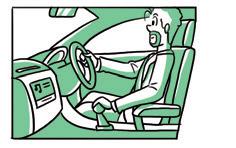


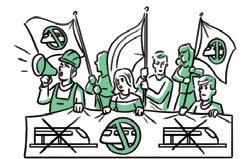
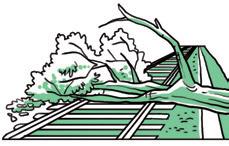
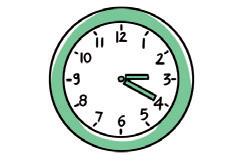
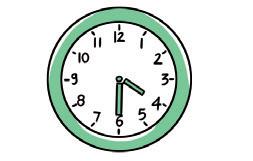
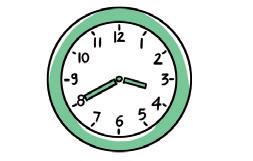


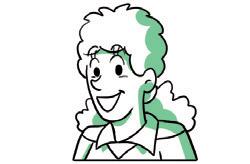




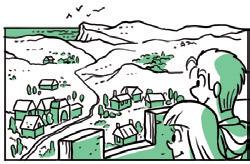
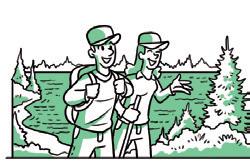
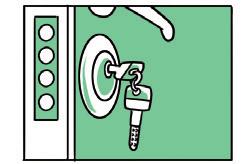


Part
2 Questions 8-13
For each question, choose the correct answer.
8 You will hear a boy talking about housework: what does he dislike doing?
A washing the dishes
B cleaning the windows
C tidying his sister's bedroom
9 You will hear two students talking about a concert. What do they agree about?
A the guitarist wasn’t as good as expected
B the singer was too loud
C the volume was too high
10 You will hear two friends talking about a new sports centre. When did they sign up?
A one week ago
B two weeks ago
C three weeks ago
11 You will hear a man arranging to meet his daughter after school. What time are they going to meet?
A 3:45
B 4:30
C 5:00
12 You will hear a conversation between two students on a school trip. What are they talking about?
A a church
B a tower
C a bridge
13 You will hear a teacher talking to her students. What does she want them to do?
A write an essay
B make an online presentation
C send in a review
Always listen to the whole conversation before making your choice. If you are not sure about an answer, remember you will always hear the recording twice.
In this part of the test you will hear six dialogues where people often:
• give their opinion about something or someone
• talk about what they plan or would like to do
• agree or disagree about something.
Candidates should focus more on the opinions, thoughts and feelings expressed rather than what actually happens.
For each question, write the correct answer in the gap. Write one or two words or a number or a date or a time
You will hear a woman talking about a cruise ship.
Built in: (14)
First tour: The Mediterranean Sea Length of the ship: (15) long Can carry: 2,500 passengers and 1,700 staff
Rainbow deck
- daytime: a large area with two pools and three hot tubs where passengers can (16) or relax
- nighttime: music and light show
three dining rooms – cuisine from Japan, Italy and France time: (17) p.m. to 9.30 p.m.
Cloud Nine Deck movie theatre (film begins at 10:00 p.m.) (offering popcorn, ice cream and fresh (18) )
Visit our website at (19) .com
Listen to the spelling of unknown words and practice writing them down correctly. Write any numbers you hear as numerals, not words. It’s easier!
In this part of the test there is a person talking about a place to visit (a museum, a gallery, a holiday resort, etc.) or a plan (a school trip, a camping holiday, etc.).
Candidates will usually have to fill at least two gaps with:
• numbers (dates, times of the day, years, sizes, etc.)
• websites or email addresses, which are spelt out by the speaker.
Sometimes both the singular and the plural form of a word are accepted, unless there is a quantifier (a, an, some, etc.)
Smaller numbers and dates can be written in different forms (nine or 9, 12th or twelfth, March 2 or the second of March, or 2/3, etc.).
For each question, choose the correct answer.
You will hear an interview with a manga artist talking about his job.
20 How did Masayoshi become interested in manga?
A He started drawing his two sisters’ dolls.
B His grandfather taught him to draw.
C He learnt to draw on his own.
21 ‘Cherry Blossoms in the Snow’ was
A sometimes difficult to write.
B the work that made him win the 1992 prize.
C a 35 volume series.
22 What do his first two series have in common?
A They both contain many supernatural characters.
B They tell about a similar historical period.
C They are about sisters fighting with each other.
23 What inspires the artist for his characters?
A people from his own family
B both real people and ancient legends
C famous heroes from the past
24 What has helped manga to become so popular?
A Cosplay has increased the interest in Japanese cartoons.
B Children can learn Japanese culture through manga.
C In some western countries adults often enjoy reading comics.
25 What does Masayoshi suggest doing when drawing manga?
A try to surprise the audience
B use a science fiction setting
C avoid too much imagination
The questions you have to answer follow the same order as the interviewer’s questions. If you are not sure about an answer use a pencil to circle the possible answers and focus when you listen again.
In this part of the test candidates listen to someone interviewing a person. Candidates should read the questions first to get an understanding of what the interview will be about. They will need to have a detailed understanding of the interview text to answer the questions correctly.
The interlocutor asks the same questions to candidate A and candidate B. Interlocutor Good afternoon. Can I have your mark sheets, please? I’m (interlocutor’s name) and this is (assessor’s name).
What's your name? How old are you?
Where do you come from? Are you a student? What do you study?
Thank you.
Do you live in name of town/city/region? Do you study? What subject do you study?
The interlocutor asks some personal questions to each candidate. Ask Candidate A first.
Interlocutor Candidate A
What did you do yesterday evening? Did you do anything yesterday evening? What? Would you like to live in a different Do you want to live in a different country? Why? country? Why? / Why not?
Candidate B
What’s your favourite subject at school? What subject do you like best? Do you think that English will be useful Will you use English in the future? for you in the future? Why? Why / Why not?
Thank you.
In first phase of Speaking Part 1, the questions are about your personal details, your daily life and likes and dislikes. Try and use this time to relax!
You are expected to give short but articulate answers (no one-word answers), so it’s not necessary to speak too much in this phase.
Candidates should practice the best way to answer questions such as ‘What do you study?’. What could the ideal answer be among these ones?
B I study several subjects and English, of course. C I study English, Maths, Geography, History, PE, Science. My favourite subject is Maths, but I also like English very much because I think it’s very useful and I really like it.
The interlocutor gives each candidate a photograph with a different topic.
Interlocutor
Now I’d like each of you to talk on your own about something. I’m going to give each of you a photograph and I’d like you to talk about it.
A, here is your photograph. It shows friends doing something together.

B, you just listen.
A, please tell us what you can see in the photograph.
• Talk about the people/person.
• Talk about the place.
• Talk about other things in the photograph.
Interlocutor Thank you.
Interlocutor
B, here is your photograph. It shows some people reading.

A, you just listen.
B, please tell us what you can see in the photograph.
• Talk about the people/person.
• Talk about the place.
• Talk about other things in the photograph.
Interlocutor Thank you.


Speaking Part 2 is to show what vocabulary you know so focus on what words you know and what you can describe. Don’t worry about trying to describe everything you see.
If you can’t remember a word, try and think of other ways to say the same thing.
Interlocutor
Now, in this part of the test you’re going to talk about something together for about two minutes. I’m going to describe a situation to you.

Your French teacher is going to retire. You would like to give her a present. Here are some things you could give her as presents. Talk together and say which present would be the best for her.



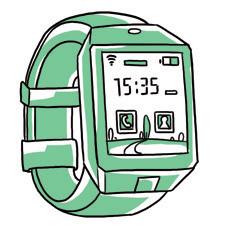

All right? Now, talk together.
The interlocutor asks questions related to what candidates discussed in Part 3.
Interlocutor
What kind of presents do you like giving to older people?

What’s the most unusual present you have received?
When do people exchange presents in your country?
Where do you prefer shopping for presents?
Do you prefer to get hand-made presents or experiences (theatre, trips, concerts, etc.)?

Thank you. That is the end of the test.
Select any of the following prompts, as appropriate:
• How/What about you?
• Do you agree?
• What do you think?
For each question, choose the correct answer.
A Sam has to buy eggs for a dozen guests as soon as he can.
B There are no eggs left so Sam has to get some.
A Eating at the Kebab Kingdom only costs £3 at lunchtime.
B You can have lunch for less than £3 if you have a reservation.
C People who have booked in advance don’t have any extra charge to pay.
Always read the three options (A, B or C) carefully and compare each of them to the text. Once you’ve chosen the best option, read the text again to check it.
Make sure candidates understand the meaning of the texts, even if they don’t know all the words they contain.
As an example, they can answer questions such as:

• What does the expression ‘run out’ mean in text 1?
• Do you know an expression that means the same as ‘make a reservation’?
• What’s the meaning of the phrasal verb ‘pick up’ in text 3?
• Which information in text 4 do you have to focus on?
• Why is the receipt important in text 5?

The Kebab Kingdom £3 minimum charge per person between midday and 2 unless you have a reservation
C Sam’s mother wants him to buy 6 eggs.
Sam, I’ve run out of eggs and need you to buy a dozen. Could you get them by 6 this evening? Thanks, Mum.
4

To: From: Hi Brenda, I’ve booked the theatre tickets for tomorrow’s show online. Please, pick them up on your way home.
Pete
Pete
What does Pete want Brenda to do?
A Reserve two tickets for tomorrow’s show.


B Collect the theatre tickets.
C Pick him up to go to the theatre together.
A Only building workers can eat at the canteen now.
B The canteen is closed when staff are working.
C You will be informed when the canteen is open.
A You can’t return any item unless you have a receipt.
B Keep your receipt if you want to get a discount.
C The shop won’t give you a receipt if you exchange items.
to building work
canteen
For each question, choose the correct answer.
The people below are all looking for information about the past. On the opposite page there are descriptions of eight websites. Decide which one would be the most suitable for each of them.
Soo-Yun needs to find some key facts about 19th-century literature. She would also like to test her knowledge of the greatest writers of the time and their works.
François wants to learn about Victorian society. He is looking for a website where he can download interesting photos for his history project on education in the late 19th century.

Michael’s interested in fashion history. He would like to know how clothes changed from the late Victorian Age to the early 20th century. He would also like online advice on how to become a costume designer.
Selma has to design the scenes of a school play based on Dickens’s novels: she wants to find out more about late Victorian architecture and see videos on London in the 19th century.
For her project, Chiara has to find out about the greatest inventions of the 19th century. She’s fond of machines and would like to share her interest with other people online.
Read all the texts and descriptions first before you try to match them.
Don’t just look for the same or similar words in the texts and the descriptions, even if they could be useful. Remember you need to focus on the whole meaning.

A successful strategy to complete this part of the test is to advise candidates to:








• underline what each person is interested in exactly
• read the eight texts to find the necessary information
• underline ANY matches between the people’s descriptions and the eight texts
• find the option which matches ALL the things the people are looking for.
This website has several sections covering life in the Victorian Age. You will be able to learn about social issues such as women’s changing role or how children were brought up at the turn of the 19th century. There is also a large photo gallery with hundreds of pictures of typical Victorian schools.
This website has a lot of amazing information on today’s greatest inventions of the 20th century, from the TV to the internet. There is also an interesting section where you can learn about how people used to live before modern era machines like the radio, the telephone and the washing machine were invented.
This website will help students to prepare for their exams on English literature in time, from the Middle Ages to the greatest works of the 20th century. You will also find useful mind maps and quizzes about the main novelists and poets of each literary period and what they wrote.
This website has lots of key facts, study maps and online tests about the Industrial Revolution and workers in the Victorian Age. You will find out about what it was like to work in a factory in the 19th century and a video on the condition women and children in Victorian factories.
Are you a Victorian fashion lover? This website will help you to make your own Victorian dress! Watch the video and follow the step by step guide on how to choose the material and sew your dream costume. You’ll look like a character from Dickens’s novels in no time.
If you want to learn about what Victorians used to wear, this website has lots of videos and illustrations from 19th-century magazines showing you what was fashionable from the 1850s to the early 1900s. For those who dream to become Victorian dressmakers, there is a section where you can ask for career advice from famous costume designers.
Did you know that the first underground railway was opened in London in 1863? Find out about this and many other Victorian inventions on this website. You’ll find plenty of information on the fantastic machines which were on display at the 1851 Great Exhibition. Users can also share information on the topic in the comment section.
This website offers a wide range of material for anyone interested in what London looked like in the Victorian Age. You will be able to look up over 350 illustrations from popular Victorian novels and a 2-hour documentary on schools, factories, houses and many other buildings of the time.
For each question, choose the correct answer.
When Tom Trent started his school project on environmental issues, he had no idea environmental pollution depends on the fact that we all own a lot of things which end up turning into rubbish. Although we don’t need many of the things we own, most of us still waste a lot of money on more clothes, devices and objects we could easily live without. This is why he soon decided to make a change and start decluttering his room, which meant getting rid of all the things he hardly used.
He first made a list of all the stuff he never used: he wrote down the clothes which were never worn, and then added his old phones, MP3 players, old notebooks, and a lot of other old things he kept in his drawers and shelves. He also asked his family to do the same and then he started posting pictures of their things online: some of them were for sale, but he gave most of them away for free. It was a great way to avoid producing more rubbish!
Tom now realises that decluttering can help you achieve more than one goal: if you give your things away you will not only help people who can’t afford to buy them, but you will also help the environment. In fact, the people using your things won’t have to buy new ones. At home, the greatest benefit will be having a lot of extra room. You will find out that when your house is tidier it will take longer for it to become messy again since there are fewer things around. Of course, you must try to avoid buying new things or you’ll quickly fill the empty space with stuff again!
First, read the text quickly to find out its general topic. Then read it again carefully and study all the options for each question before choosing the correct one.
Remember that while the first four questions follow the order of the text, the last one is about its global meaning.
In this part candidates need to know the meaning of several adverbs, linking words and idiomatic phrases. Here are a few which appear in the text. Which of the two synonyms on the right is the closest to their meanings?
• although (line 3) unless / even if
• own (line 3) to have / to want
• get rid of (line 5) eliminate / to clean
• hardly (line 5) almost no / difficult
• give away (line 9) throw out / offer as a gift
• for free (line 9) not working / without a payment
• afford (line 12) have enough money / have no interest in
• extra room (line 14) one more room / more space
11 The first paragraph says that
A people need a lot of clothes and devices to live well.
B living in today’s world is very expensive because you need a lot of things.
C most of the stuff we have is hardly necessary to live a comfortable life.
D many people want to have more than they can afford.
12 What is ‘decluttering’?
A giving old things to poor people
B cleaning and tidying up your home
C making a list of all the things you rarely use
D removing things you don’t need from your home
13 How did Tom manage to clear most of the things from his home?
A He sold them to people online.
B He offered them as gifts.
C He threw them away.
D He moved them into an extra room.
14 Which advantage has Tom noticed at home after decluttering?
A He doesn’t have to clean it so often as before.
B The home is always tidy.
C It is faster to do the cleaning.
D There are more rooms in his house.
15 What other benefit might come from decluttering?
By selling all the extra things in your home you can earn something and help others save money, too.
C B D
If you remove all the things you don’t need from your home you will help both people and the planet.
Decluttering might increase pollution because you throw away a lot of old things when you clear your home.
When you get rid of your old things you will have more space to fill with all the new things you will buy.